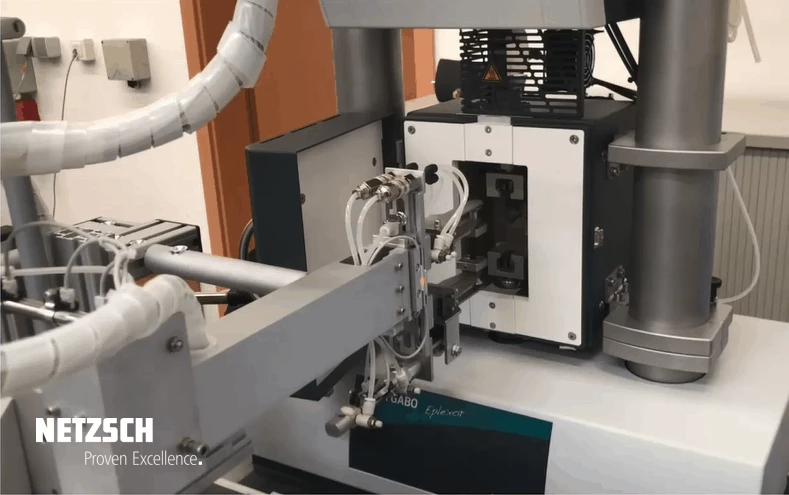
11.01.2021 by Milena Riedl
Усовершенствованная система автоматического отбора проб для DMA GABO Eplexor®
Серия DMA GABO Eplexor® позволяет проводить динамическую механическую (или статическую) характеризацию широкого спектра различных материалов. Добавив одну из двух доступных систем автоматического отбора образцов (ASC - Automatic Sample Changer или MPAS - Multi-Purpose Automatic Sample Changer), любой DMA GABO Eplexor®® может быть преобразован в полностью автоматическую испытательную систему. Читайте также!
Серия DMA GABO Eplexor® позволяет проводить динамические механические (или статические) характеристики широкого спектра различных материалов, включая эластомеры, полимеры, композиты, металлы, стекла, керамику, биоматериалы, пищевые продукты, клеи и жидкости. Модульная конструкция высокосильной системы DMA позволяет проводить измерения в режимах растяжения, сжатия, изгиба и сдвига. Различные дополнительные опции делают серию DMA GABO Eplexor® надежной инвестицией на долгий срок.
Мощное дополнение: Системы автоматической выборки
Добавив одну из двух доступных систем автоматического отбора образцов (ASC - Automatic Sample Changer или MPAS - Multi-Purpose Automatic Sample Changer), любой DMA GABO Eplexor® можно превратить в полностью автоматическую испытательную систему. Непревзойденная система MPAS даже позволяет вставлять держатели образцов в произвольном порядке.
Многоцелевой автоматический сменщик образцов (MPAS)
MPAS может использоваться как минимум для четырех различных типов держателей образцов без вмешательства пользователя. Это растяжение, сжатие, двойной сдвиг и трехточечный изгиб, которые являются наиболее важными геометриями.
Посмотрите демонстрацию MPAS для клиентов
Посмотрите видеоролик о многоцелевом автоматическом сменщике образцов (MPAS), произведенном в офисе NETZSCH в Альдене, Германия! Испытайте уникальный MPAS в действии, выполняя временной и температурный контроль.
Сколько образцов можно измерить с помощью MPAS?
Стандартная конфигурация включает 10, 20, 30 или 40 образцов. Опционально MPAS может быть расширен до 160 образцов.
С образцами какой длины может работать MPAS? Есть ли ограничения по толщине и ширине?
MPAS может работать с образцами длиной 10 мм и 30 мм. Толщина образцов может составлять от 1 до 4 мм, а ширина - от 2 до 10 мм. Для достижения наилучших результатов наши специалисты рекомендуют использовать образцы толщиной 2 мм и шириной от 5 до 10 мм.
Нужно ли измерять все размеры образцов перед подачей их в автоматическое устройство смены образцов?
И да, и нет. Обычно толщина листов, используемых для подготовки образцов, фиксирована. Толщина образцов обычно составляет около 2 мм из-за самого процесса вулканизации. К сожалению, толщина листов не является постоянной. Она может варьироваться от 1,8 мм до 2,2 мм.
Поэтому перед испытаниями целесообразно измерить толщину образцов. То же самое следует сделать и для ширины.
Программное решение NETZSCH для DMA GABO Eplexor® и MPAS позволяет вводить геометрию образцов после испытания, даже если оно уже закончилось.
Обязательно ли открывать печь и затягивать винты на держателе образца после охлаждения до начальной температуры?
С данной системой это не проблема. Держатели разработаны как самозатягивающиеся системы. При низких температурах нет необходимости открывать дверцы температурной камеры и снова затягивать держатели.
Более подробную информацию о серии DMA GABO Eplexor® можно найти здесь!